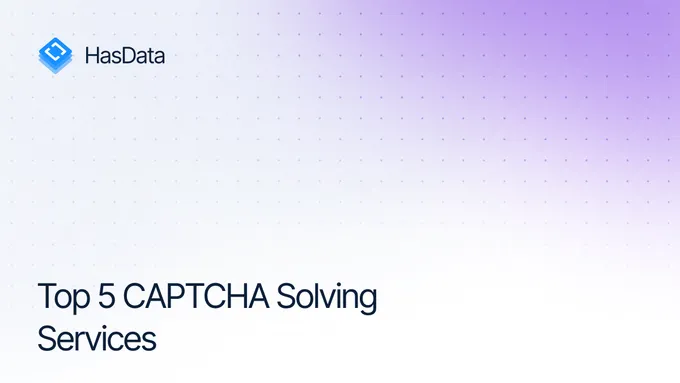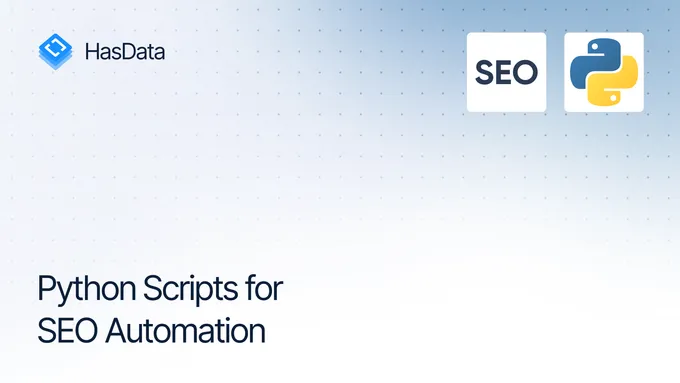Best SEO APIs for Building Powerful SEO Tools and Software
Effective SEO requires constant monitoring and analysis of many factors. While many SEO tools are available, they can be inconvenient for collecting data for large-scale projects or integrating their capabilities into existing software. APIs (application programming interfaces) are a more efficient solution in this case. They provide direct access to the data you need in a format that is easy to process.
This article will review the different SEO APIs available for keyword research, competitive analysis, website audits, and other use cases. We will also discuss choosing the right SEO API and provide tips for using these APIs to create powerful applications that simplify website analysis and optimization.
What are SEO APIs?
SEO API is an interface that allows developers to integrate the functionality of third-party SEO services into their own applications. This can be used to add new features, such as keyword research, competitor analysis, and site audits.
SEO APIs typically provide more flexibility than using the services directly. They allow developers to integrate SEO tools and data into their applications, automate certain processes, and get up-to-date information about search visibility, keyword rankings, competitor analysis, and other aspects of search engine optimization.
Benefits of using SEO APIs
SEO API provides a range of features that can benefit your application or business. One of the key benefits of using API is the ability to automate website analysis and optimization tasks. This can save time and improve efficiency.
In addition, SEO API provides access to current information about website rankings, traffic analytics, keywords, and other factors that impact search engine optimization. This lets you quickly respond to changes and adapt to search algorithm requirements. You can also use this data to track competitor positions, strategies, and keyword rankings.
For the most effective marketing strategies, you can use SEO API to perform a deeper analysis of keywords, such as evaluating their effectiveness, search volume, and competitiveness.
SEO API is easily integrated with tools and programs like analytics, CRM systems, and content management platforms. This simplifies collaboration and data sharing between different tools.
As search algorithms are constantly updated, SEO API allows you to adapt to new requirements and changes quickly, minimizing the loss of traffic and rankings in search results.
The Top SEO APIs for Marketers and Agencies
Many SEO tools are available today, but only a few offer API integration. Additionally, API access is often only available as part of a paid subscription. This article lists the most useful and popular tools with API integration.
HasData’s SERP API
HasData’s SERP API is a powerful tool that can be used to scrape Google search results. It can track keyword rankings, analyze competitors’ strategies, and uncover new growth opportunities. In another article, we have covered how to use SERP API to track and check rankings in Google search results. Additionally, we have integrated this API into Google Sheets to make the data collection and analysis process even easier and more intuitive. The API returns a wealth of data, including:
- URL, title, and description of each organic result
- SERP Snapshot
- Most common SERP features:
- Knowledge Panel
- People Also Ask
- Image Pack
- Local Pack
- Knowledge card
- Knowledge panel
- Shopping Results
- Top Stories
- Thumbnail
- Tweets Box
- Video
- Local Pack
All of this data is returned in a convenient JSON format. Let’s see an example of the JSON response structure:

To get started with HasData’s SERP API, simply sign up for a free account and verify your email address. You will then be given 1000 free credits, which is equivalent to 200 SERP requests. This is enough to test the API and see if it is a good fit for your project.
Google Search Console API
Google Search Console is a powerful tool for website owners to track their site’s performance in search results. It provides a wealth of data, including search positions, clicks, CTR, and other Google analytics.
The Google Search Console API provides programmatic access to this data, allowing you to automate tasks and integrate it with other systems and can be used for a variety of SEO tasks, including:
- Data collection. The API can collect data for analysis, such as search positions, clicks, and CTR.
- Indexation monitoring. The API can monitor your site’s indexation status and identify any problems.
- Page optimization. The API can be used to identify pages that are not indexed, or that could be improved for search engines.
To use the Google Search Console API, you should create a Google Cloud Platform account and enable the API. Once you have enabled the API, you can use it to build your own applications. Remember that the Google Search Console API is limited to the sites you can access. If you want to access data for multiple sites, you should create a separate API key for each one.
MOZ API
Moz API is a powerful tool for developers who want to integrate SEO data into their applications. It provides access to a variety of metrics, including:
- Domain Authority
- Page Authority
- Spam Score
- Subdomain External Links
- Root Domain External Links
- External Equity Links
- All Links
- Root Domains Linking.
This data can be used to analyze website SEO performance, identify potential backlink opportunities, and benchmark against competitors.
To get started with the Moz API, you’ll need to create a Moz account and generate an API key. You can then use this key to access the API and retrieve the desired data. For new users, there is a free plan that allows up to 2,500 data rows per month. Paid plans start at $250 per month for more data-intensive usage.
This API is ideal for building custom applications to analyze SEO performance and automate tasks related to link analysis and competitor analysis.
Ahrefs API
Ahrefs API allows users to access data from the Ahrefs index, a massive database of information about over 90 billion unique pages, including their backlink data, keywords, search engine rankings, and more. Ahrefs is also one of the most popular and widely used SEO platforms due to its wide range of features.
Previously, all Ahrefs subscriptions granted access to API v2. However, this version was discontinued on March 1, 2024. Currently, only API v3 is available, and it’s offered exclusively with higher-tier subscriptions. But fortunately, existing API v2 integration applications are unaffected and continue to work as before.
You can learn more about these APIs’ features in the official documentation. Using special endpoints, you can use the data for SEO analysis, competitor analysis, social media marketing, and content analysis. For example:
- To get domain search engine rankings, you can use the following query:
https://apiv2.ahrefs.com?from=ahrefs_rank&target=ahrefs.com&mode=exact&output=json- To get domain backlinks, you can use the following query:
https://apiv2.ahrefs.com?from=backlinks&target=ahrefs.com&mode=exact&output=json- To get domain keyword data, you can use the following query:
https://apiv2.ahrefs.com?from=keywords&target=ahrefs.com&mode=exact&output=jsonRemember, to use any Ahrefs API, you should create an Ahrefs account and purchase an API subscription. You will then receive a token that you need to use to authenticate API requests.
Semrush API
Semrush API is a tool that allows you to integrate the features of the SEO service into your own application. Semrush is well-suited for automating data analysis, creating custom tools and reports, and domain, keyword, and backlink analytics. Depending on your needs, you can choose from one of the two available APIs:
- Standard API Package. This package includes all of the core Semrush analytics and project management features.
- Traffic Analytics API. This package is designed to get information about website traffic.
To use the Semrush API, you should create a developer account and obtain an API key. Once you have an API key, you can use the API in your code. However, it is important to note that access to the API is only available with a Business subscription, which costs $499.95.
Majestic API
Majestic API is a powerful tool for tracking SEO metrics. Majestic data provides information about a website’s link structure, including the number and quality of links, and a comprehensive website analysis.
Majestic API provides comprehensive data about domains, pages, and links. It is a great tool for analyzing a website’s backlink profile or tracking changes. It can also be useful for link-building tasks such as finding or building new links.
However, full access to the Majestic data set is only available with a paid subscription. This means that even using the Majestic service directly, you can only access a partial data set.
Free Majestic API Alternative
Majestic API offers a wealth of data, but it can be expensive. If you’re looking for a free way to access Majestic data on CF, TF, backlinks, and more, you can use Majestic to collect the data you need and then use HasData’s web scraping API to collect all of the data on the page, including data that is not visible.
To demonstrate how such a script works, we have written a small example in Python that you can run directly on the colab research page. To do this, you should replace the data in the second code block with your HasData API key and paste the link to the website you want to analyze.

Get Majestic results using Scrape-It.Cloud API and Google Colab.
Then, run each block of code one by one.

As a result, you will get two files - JSON and CSV with all the data obtained from Majestic using the Web Scraping API. To find your saved files, look in your project folder:

The generated JSON file will be as follows (we’ve shortened it for convenience, so you’ll get a lot more data when you run the script):
{
"lastCrawlDate": "2023-12-05",
"numberOfExternalOutLinks": 3,
"numberOfInternalOutLinks": 35,
"numberOfExternalOutDomains": 3,
"nonUniqueLinks": {
"total": 101,
"numberOfIndirectLinks": 0,
"numberOfDeletedLinks": 17,
"numberOfNoFollowLinks": 33,
"numberOfHomepageLinks": 0,
"numberOfHttpsLinks": 96
},
"numberOfEducationalBacklinks": 0,
"primaryTopic": "Business/Marketing and Advertising",
"refDomainCounts": {
"follow": 40,
"https": 53,
"homepage": 0,
"direct": 55,
"live": 49
},
"acrank": 5,
"citationFlow": 31,
"pageTitle": "Web Scraping API for Data Extraction | HasData",
"trustFlow": 13,
"numberOfExternalBacklinks": 90,
"numberOfReferringIPs": 50,
"globalTopicsCount": 3,
"numberOfGovernmentBacklinks": 0,
"numberOfReferringSubnets": 48,
"numberOfAnalysisResUnits": 90,
"numberOfReferringDomains": 55,
"duplicateLinkCounts": {
"redirect": {
"nonUniqueLive": 0,
"nonUnique": 1
},
"nonNotableDuplicate": {
"nonUnique": 11,
"nonUniqueLive": 3
},
"distinct": {
"nonUniqueLive": 14,
"nonUnique": 82
}
},
"numberOfLanguageCheckedPages": 1
}You can copy this script, modify it for your needs, use it online, or embed it in your project.
How to Choose the Right SEO API
To choose the best SEO API, you should follow some rules. Before we discuss each of them in more detail, we have briefed them on the image.

The first step is to understand what you need the API to do. This will help you understand what functionality you want from the API. Once you understand your needs, you can narrow your options.
Once you understand your needs well, you can evaluate different APIs’ capabilities. Look for an API with the needed features, such as data collection and analysis, keyword research, competitive analysis, site auditing, and rank tracking.
SEO APIs can range in price from free to hundreds of dollars per month. It’s important to compare prices before you make a decision. You should also consider the level of support offered by the API provider.
Before you commit to an SEO API, it’s a good idea to test it out. This will help ensure it works well with your project and meets your needs. Here are some additional tips for choosing the best SEO API:
- Read reviews from other users.
- Contact the API provider to ask questions.
- Start with a free or low-cost plan.
You can choose the best SEO API for your needs by following these steps.
Using SEO APIs for Powerful SEO Applications
SEO APIs provide developers with a convenient way to create data-driven website analysis tools. They offer access to data in a structured format that can be used to automate tasks, gain insights, and improve website performance.
Keyword Research and Analysis
One of the many ways to use SEO APIs is to identify relevant keywords and phrases for audience analysis. These tools provide up-to-date data on keyword competition, search volume, and historical trends, which can be used to automate targeted SEO strategies to help you rank higher on search engine results pages.
The best choice is the SERP and Ahrefs APIs.
Rank Tracking and Monitoring
SEO APIs allow you to track your website’s ranking for specific keywords over time. Using an API instead of a service allows you to receive data in a format already ready for further processing, which can help reduce the workload on SEO professionals.
Using a rank tracker is one of the most important tools for SEO work. It allows you to track not only the dynamics of changes in your website’s ranking but also to take timely action in case of a decline in positions. In addition, using an SEO API, you can create your own flexible tool for tracking changes, periodic notifications, or automatic data collection over a long period of time.
The best choice is the Google Search Console and SERP APIs.
Backlink Analysis and Management
Backlinks are one of the most important ranking factors in SEO, and they can be analyzed using SEO APIs. Search engines use backlink analysis to rank websites more effectively, determining the most useful resources.
Continuous backlinks monitoring can help you analyze your website’s backlink profile and understand the context in which your resource is linked.
SEO APIs can be used to create specialized tools for automating the collection and analysis of backlinks. You can integrate these tools into your application and, for example, automatically analyze the type of backlink and the context of its use.
By timely identifying and analyzing backlinks and their quality, you can improve your website’s backlink profile.
The best choice is the Ahrefs and Semrush APIs.
Technical SEO Audits and Optimization
Another use of SEO APIs is to develop applications for analyzing and optimizing websites for search engines using technical SEO. This allows you to identify website issues such as broken links, duplicate content, and mobile responsiveness in a timely manner. This information can be used to improve the content and indexability of your website.
The best choice is the Google Search Console and PageSpeed Insights APIs.
Content Optimization and Generation
SEO APIs can also optimize your website’s content for search engines. They can also provide data on keyword density and readability of your content. This information can be used to improve the quality of your content and boost its ranking in SERPs.
In addition to these specific apps, SEO APIs can automate tasks such as creating sitemaps and submitting websites to search engines. They can also integrate SEO data into other applications, such as marketing automation platforms and CRM systems.
The best choice is the SERP, Semrush and Ahrefs APIs.
Conclusion
SEO APIs provide developers and businesses powerful tools to improve website visibility and optimization. Businesses can automate analysis, competitor tracking, and content optimization by integrating APIs such as SIC’s SERP, Google Search Console, Moz, Ahrefs, Semrush, and Majestic.
These APIs provide valuable data on rankings, traffic, keywords, and backlinks, helping businesses quickly respond to changes in search algorithms.
The choice of the right SEO API depends on specific needs, and targeted use of APIs opens up opportunities for creating powerful SEO tools and automating tasks such as sitemap generation and data integration into other marketing and customer relationship management platforms.



